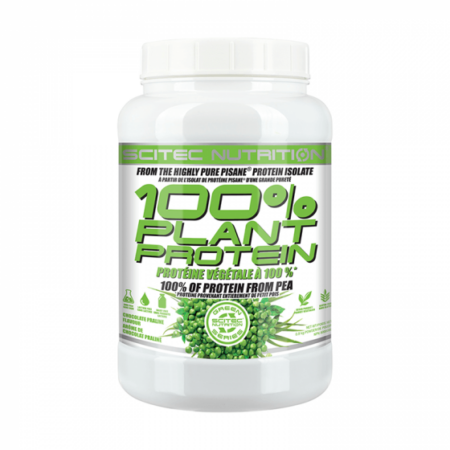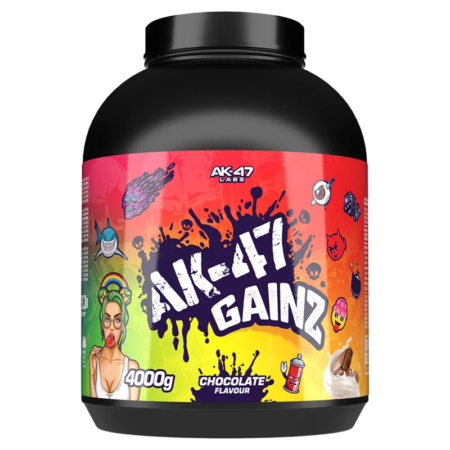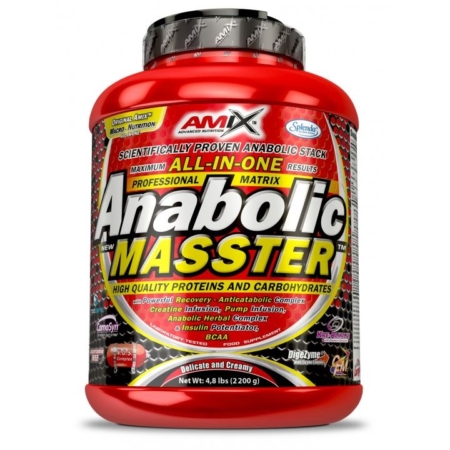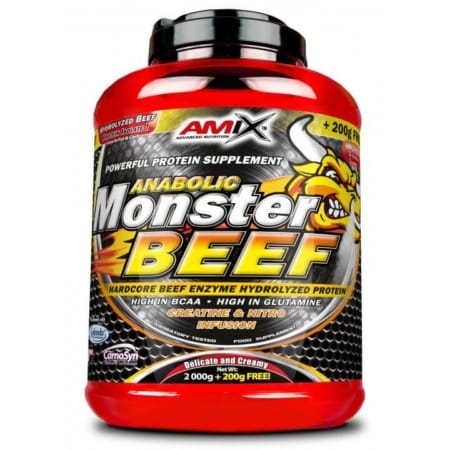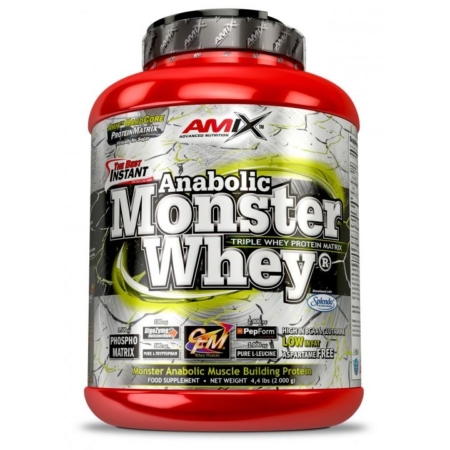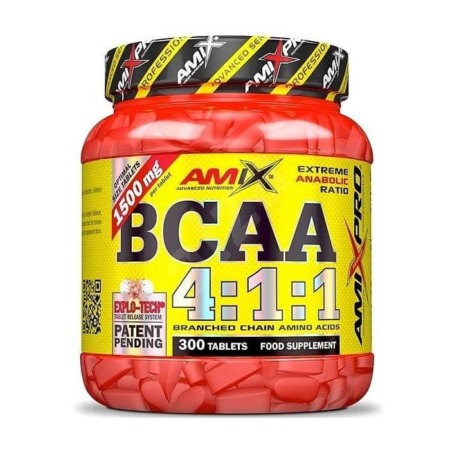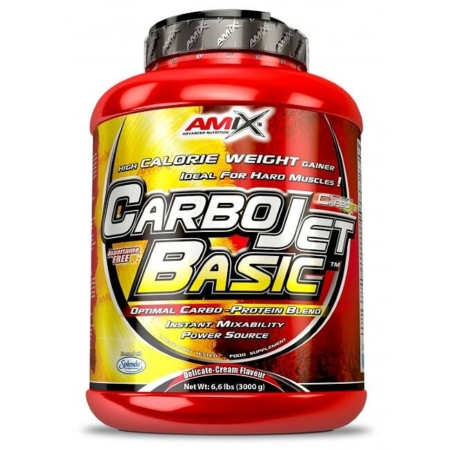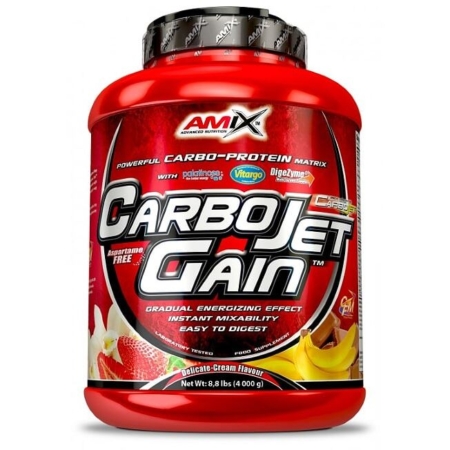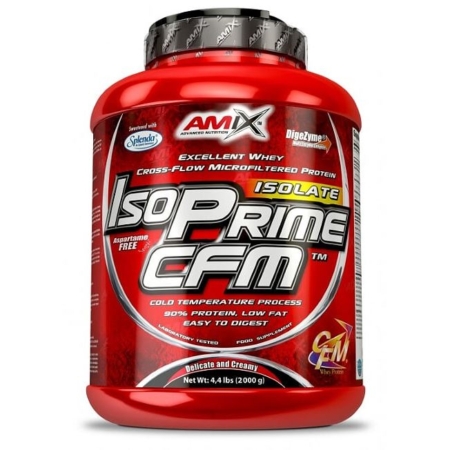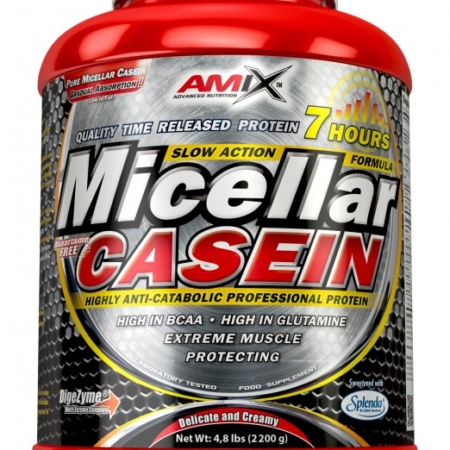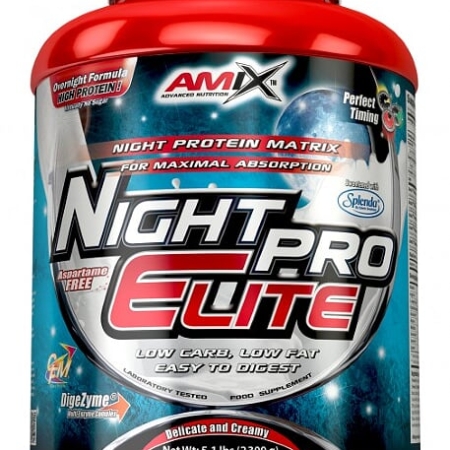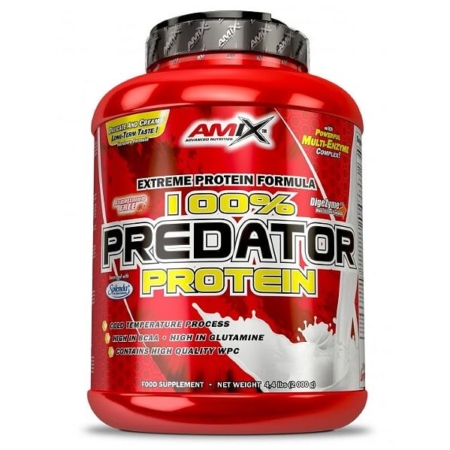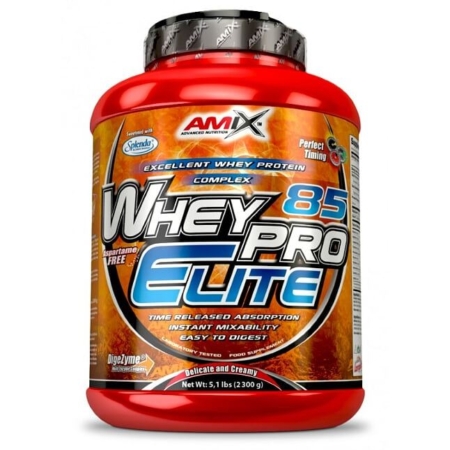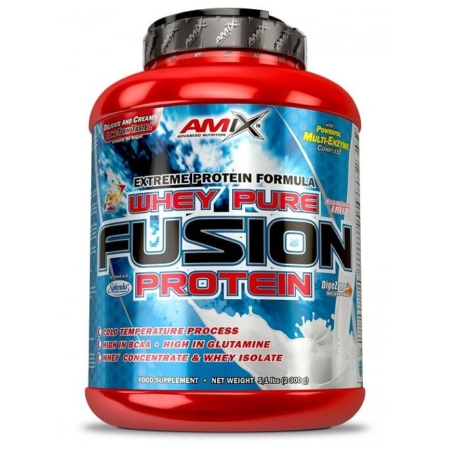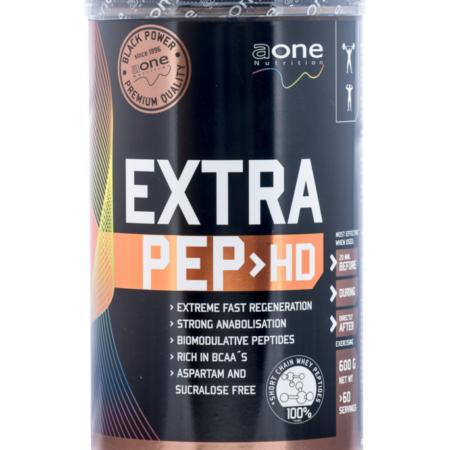Proteins, Whey Protein, and More
Proteins are a key component of our food and important not only to bodybuilders, fitness athletes, or professional sportspeople. Apart from muscle buildup, they have many more functions in the human body. Proteins are rightfully considered the No. 1 muscle fuel when training regularly. When you train hard and are unable to cover your increased protein requirement through food intake, we recommend our protein supplements to you. Be it a breakfast shake or protein shake for after training or in-between; be it beef protein, casein, whey protein, multi-component protein or protein isolate; be it vanilla, chocolate, or banana: We have just the right thing for every taste!
Further below you will also learn: what are proteins actually, what do proteins do in the human body and how is protein utilized, what are the most important sources of protein, what biological valency of proteins is all about, how high a human’s protein requirement is, and why as an athlete you should count on high-quality sources of protein. Also we will reveal the ideal time for you to take your proteins and give you tips for choosing the right protein product.
More on that topic…
What Are Proteins?
Proteins are biological macromolecules made up from peptide bonds of amino acids. Short amino acid chains are called peptides. Starting only from a length of about 100 of them they are called proteins. Most proteins are chains of 100 to 300 amino acids. The largest currently known protein even consists of more than 30,000 amino acids chained peptidally.
Proteins in the Human Body: Task
Proteins are part of every cell. Heart, skin, hair, brain, and muscles consist of proteins, too. Depending on the structure, proteins fulfill various functions such as cell movements, transport of fat through the bloodstream, strengthening the organism and the immune system. Furthermore, they are important to all organ functions and in curing illnesses and healing wounds. For building, preserving, and renewing muscles and body cells, too, the body needs food containing sufficient amounts of protein.
Protein Utilization in the Human Body
In stomach and bowel the proteins contained in food or according food supplements are digested, decomposed into its constituents and finally broken down into components. Eventually, the cells of the intestinal mucosa absorb the dissolved amino acids into the blood stream. Since the human body is unable to produce all essential/indispensable amino acids on its own, sufficient amounts of protein have to be supplied by ingesting food. Moreover, the body is unable to store proteins, which is why proteins need to be supplied constantly via food.
Sources of Protein: Albuminous Food Items
The most albuminous food items are:
- Meat
- Fish
- Eggs
- Milk and milk products
- Pulses
- Grains
- Seeds and nuts
- Soy
- Quinoa
For a long time curd, meat, and fish were considered the best sources of protein for bodybuilders, professional sportspeople, and the like. However, it is problematic that animal products also contain lots of fat and cholesterol, which is why not only vegetarians and vegans count on vegetable proteins.
Biological Valency of Proteins
The PCCAAS (Protein Digestibility Correct Amino Acid Score) as well as the biological valency are considered the best methods for determining the quality of proteins. These values indicate how much cellular structure the body can build from a certain amount of protein, that means how efficient the protein is turned from food into endogenous protein. The higher the value the less powder is needed for building muscles efficiently. Whole egg has a biological valency of 100, soy 96, beef 80, and wheat flour about 57. Whey protein even has a biological valency of 104.
Protein Requirement: How Much Protein Do I Need?
In terms of body weight, the protein requirement is highest during phases of growth. Depending on the expert commission, the recommendations for the daily protein requirements for an average adult range from 0.9 to 1.2 grams per kilogram of body weight. This indication refers to the normal weight, not the actual body weight. For that reason overweight people do not actually need more protein than people of normal weight. Those who want to drop weight, however, can often achieve positive results more easily by increasing the protein percentage. For pregnant and breastfeeding women the protein requirement is increased by about 20%. The same applies to sportspeople since protein supports building, regenerating, and preserving shaping musculature.
When calculating the daily protein requirement anyone counting on food supplements such as whey protein, casein, beef protein or multi-component proteins should also take into account the amount of protein ingested via food every day. For an effective muscle buildup we recommend you to ingest 1.3 to 1.5 grams fo protein per kilogram body weight every day.
Proteins in Sport: More Than Just for Muscle Buildup
But why should sportsmen count on protein shakes, protein powder, whey protein, beef protein, casein, MCPs, protein isolates, etc.? When ingesting more protein, automatically more muscles are built. Because only then the muscles send the pivotal message to the metabolism: I need more energy, so please build up more muscle mass! Thereupon the body starts thickening up muscle fibers so that, for example, the upper arm grows stronger or the buttocks lift. Since musculature is made up primarily from proteins, it can only be built up and regenerated when the components necessary for doing so are available.
These are the reasons why sportspeople should ingest proteins:
- Muscle buildup
- Repair of damaged muscle fibers
- Accelerated muscle regeneration
- Accelerated protein synthesis
- Preservation of muscle mass
The protein isolated from animal or vegetable foods is available as a powder, for example. Tasty protein shakes provide high-quality protein and at the same time are low in calories and fat.
When to Take Proteins
How well the human body converts the proteins from food to muscle mass after training depends, from a scientific perspective, on three factors: the amount, the kind of protein, and the time of intake. But when should you resort to your protein powder?
- In the mornings for breakfast: Since the human body is able to store protein only to a very limited extent or not at all, you have to constantly ingest protein. In order for the body not to metabolize muscle protein, you should drink a protein shake in the morning already.
- After training: For performing anabolic, meaning muscle-building, processes your body needs proteins which you best provide right after training. Apart from building new muscle fibers the protein helps repairing damaged muscle fibers more quickly and your muscles to regenerate. For this purpose, whey protein is particularly effective because it is absorbed by the body the fastest.
- Before training: Most athletes and bodybuilders ingest enough protein over the day through their normal food intake not to need an additional protein shake before training.
- Before going to bed: In order to provide the body with the protein needed for building up muscles and for regenerating as well as to inhibit the natural muscle protein degradation process over night, many sportspeople take an extra portion protein before going to bed. Casein, being converted and utilized slowly by the body, is particularly suited for this purpose.
The Most Important Protein Supplements for Sportspeople
Among the best known and most popular protein food supplements ar
Whey Protein
Whey protein is recovered from cow’s milk. Whey protein is known to be the fastest natural protein and is also referred to as express protein. Your body absorbs it very quickly and utilizes it immediately. Here you can learn more about whey protein.
Whey Isolate/Protein Isolate
Higher in concentration than whey protein is whey isolate. Ambitious sportspeople and those who train very hard count on isolate or hydroisolate – in particular if competitions lie ahead or in definition phases and whenever no additional fat or carbohydrates are to be ingested. Here you can read more about whey isolate.
Casein or Casein Protein
The supplement casein is characterized by a high protein content and high-quality, useful amino acids. It is suitable for building up muscles or over the course of diets. Here you can learn more about casein.
Multi-component Protein (MCP) or Protein Mix
In multi-component protein supplements – short MCP – proteins from various sources are used: For example whey protein, soy protein, or egg protein. Here you can find information on MCP.
Beef Protein
Beef has been one of the most popular food items of sportspeople and bodybuilders. And even if beef protein is not made directly from steak it still helps your body to build up fat-free muscle mass in a targeted and quick manner. Here you can obtain even more knowledge on beef protein.
Proteins: How Do I Find the Right Supplement?
For an efficient muscle buildup hardly any better supplement than proteins can be found – especially whey protein, whey isolate, casein or casein protein, multi-component proteins, or beef protein. Finding the right protein, however, is not so easy. For choosing the individually fitting protein your build, your training condition, the price-performance ratio, the personal budget, and of course your training goals play the key roles. But your personal taste is important as well since protein shakes are available with various flavors.
What is true for most other products applies to proteins as well: the higher the quality the higher the price – but often the effectiveness, too. Bear in mind your own demands and your individual training goals! We will also gladly assist you in choosing the right protein
Our customers are also interested in Ephedrine HCL and our ECA Stack for sale. You should also have a look at our other supplements like Whey Protein and Fatburner Capsules.
Fatburners.at @ Social Media: LIKE & FOLLOW US!!


